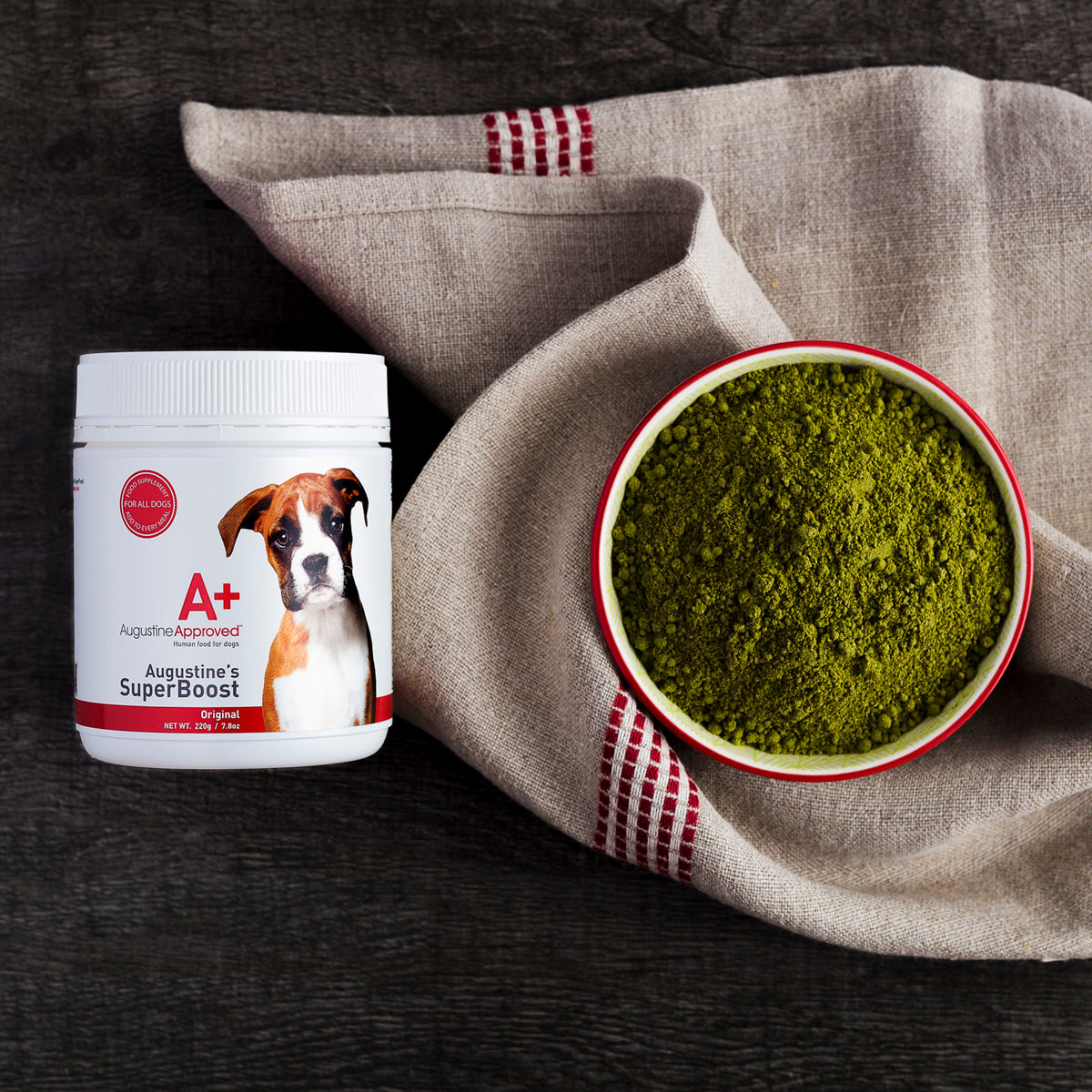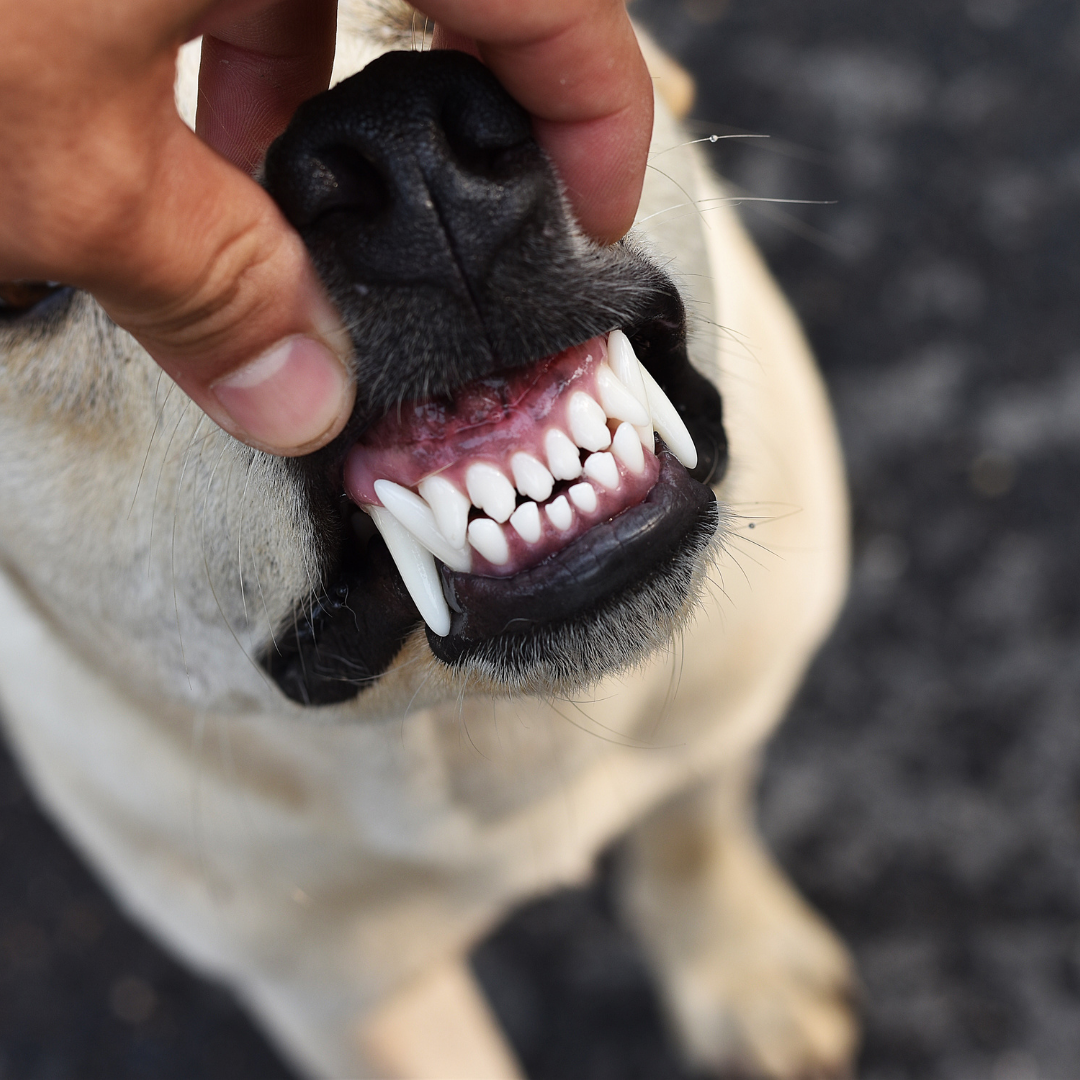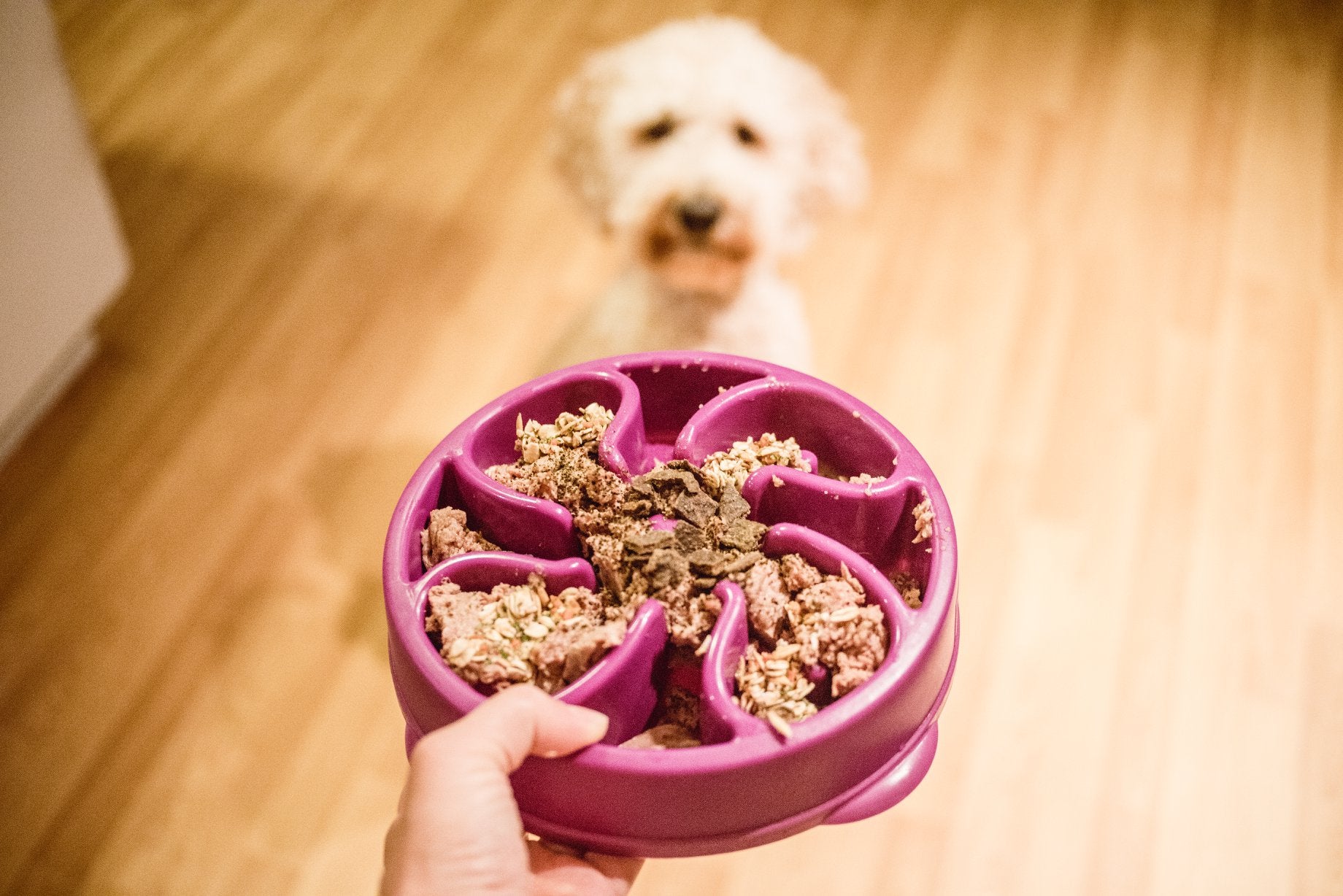Find out about the essentials when it comes to adding supplements to your pet's bowl. We stock a huge range, and can always point you in the right direction to suit the needs of your pet.
-
Overall Health & Wellbeing - So, as a security net I recommend Augustine Approved SuperBoost, which has the essential vitamin, mineral and amino acids in the canine diet in whole food form. This product is all natural, with no synthetic additives, preservatives or flavours and works to cover your bases, and ensure optimum nutrient absorption, as well as maintain skin, coat and gut health.
-
Preventing Toxin Overload - Another from Augustine Approved which most of you will remember me speaking about on occasion is Dynacol Zeolite Powder. This product binds to toxins in the gut, and through cation exchange, releases beneficial trace minerals into the digestive tract. Whether you feed chemical flea and tick preventative, use cleaners and other chemicals around the house, or have a dog prone to picking up and eating things they shouldn't, I do urge you to include this in the diet.
-
Arthritis - Mobility is a common issue discussed when it comes to older dogs. For this reason, we've got quite a range of products to help dogs already suffering from mobility issues, and to help prevent the onset of arthritis or recover after injury. Green Lipped Mussel powder can be found from your local health food store and should be given to dogs already experiencing pain, or as a preventative at a dosage of 200mg/5kg of bodyweight. For older dogs, mushroom or hemp supplements stacked on top of their current diet can also help. Try, Mushroom Medley for Mobility, or Hemp Mobility Aid.
-
Probiotics - Are extremely important if your dog has been fed a commercial diet for extended periods, has recently had flea and tick medication or has completed a course of antibiotics. Good quality, shelf-stable probiotics will help replenish the balance of good bacteria in the gut in compromised dogs. A healthy gut is a healthy animal. Try the Big Dog Probiotics.




